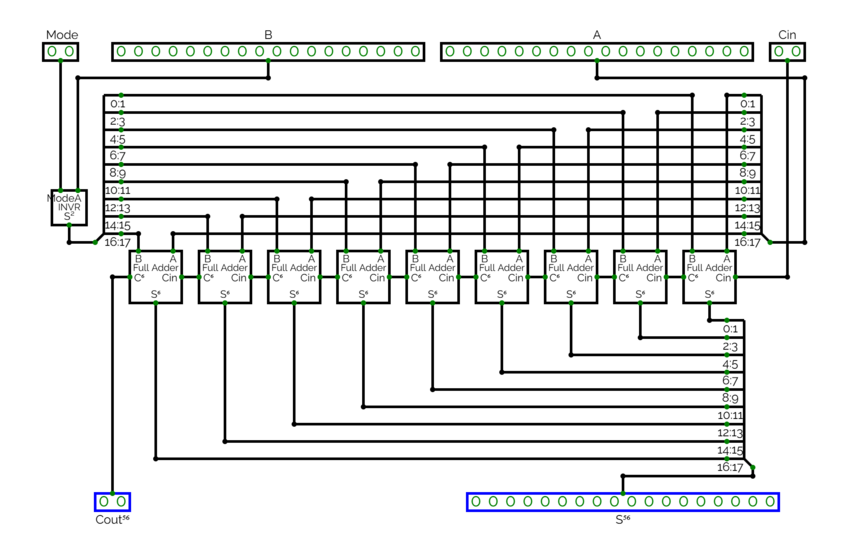Adder (BCT): Difference between revisions
| Line 10: | Line 10: | ||
== Carry Select Adder == | == Carry Select Adder == | ||
Another fast adder design is the carry select adder. This design uses MUXs to select the correct answer from | Another fast adder design is the carry select adder. This design uses MUXs to select the correct answer from adder blocks that pre-calculate the possible carries in parallel. Most of the adder's delay then becomes the MUXs selecting correct answers just in time with the adder blocks sized to finish around the same time. The current design is a bit over twice as fast as the ripple carry. | ||
Revision as of 17:24, 1 August 2025
Adder can add (or subtract) two numbers together. Negating the B input will result in a subtraction.
Ripple Carry Adder
The ripple carry adder is the simplest of adders but it's also the slowest. The carry results ripple through all the Full Adders one after another. The output delay is the total of all Full Adders. The current design takes 56 delays.

Carry Lookahead Adder
I already have a design for a fast balanced ternary lookahead increment/decrementer. It's can add or subtract one from a Tryte in single digit delay.
However, I have not figured out a working carry lookahead adder. A balanced ternary design might actually not be practical or possible.
Carry Select Adder
Another fast adder design is the carry select adder. This design uses MUXs to select the correct answer from adder blocks that pre-calculate the possible carries in parallel. Most of the adder's delay then becomes the MUXs selecting correct answers just in time with the adder blocks sized to finish around the same time. The current design is a bit over twice as fast as the ripple carry.